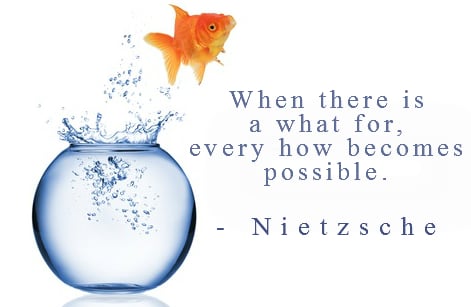
A new coach told me recently that she thought coaching is probably like most professions: 20% of coaches get 80% of the clients. And yes, she may be correct. According to my research, only about 20% of coaches are really thrilled with their businesses. Obviously, if you're going to become a business or life coach, you want to be one of the top 20%.
So what does it take to get to the top 20% of business and life coaches?
Some marketing and sales gurus will offer you "shortcuts" to coaching glory via fancy business models, affiliate programs, slick sales techniques, or complex technological solutions.
But you're a person of integrity. Don't you first want to have something of value to sell?
Because the most successful coaches I know are also the most effective coaches. They didn't get that way by marketing. They took consistent targeted action over time to become masterful coaches and developed their sales and marketing acumen along the way. Sales and marketing are most effective when you have a fabulous service offering, such as master coaching.
So what is master coaching? The ICF and IAC have defined what it takes to get master-level certification, but their requirements are different. And arguably the world's first coach,Tony Robbins, probably can't pass either the IAC's or ICF's certification. But no one argues with his success - or his mastery.
And then there's Thomas Leonard, who founded both the ICF and IAC. His definition of mastery has nothing to do with certification. He said mastery is when you innovate your profession, grow the boundaries, so to speak.
Malcolm Gladwell made famous the 10,000 hours rule that says to master anything, you need to put in about 10,000 hours of practice. For many experts, this translates into ten years or more. Hours and years alone, though, aren't enough. You need to be actively learning throughout. That's the key.
Pablo Casals was once asked why he still practiced the cello in his nineties. He said, "I'm making progress."
So do you want to know what it takes to become a master business or life coach?
- Learn the most effective coaching skills. This may sound obvious, but a surprising number of people skip this step and just announce they are coaches. Few, if any, succeed.
- Learn what is not coaching. Confusing your service offerings makes each offering less effective for your client.
- Practice. Then practice some more. Then keep practicing.
- Get expert feedback on your coaching. Otherwise, you likely are practicing - and hardwiring - your mistakes.
- Develop your personal awareness. Discover your most important values, needs, and strengths. Use them to create an amazing life. Step into your Greatness. That's so attractive.
- Let your free or low-fee clients train you. Their success or lack of it will help prepare you for high-fee clients.
- Ask your happiest clients to refer more clients. They'll be glad to help.
- Hang out with successful coaches. You become who you hang out with.
- Get your own coach(es). It's enlightening to be on the receiving end of coaching.
- Have a vision for your coaching that focuses you and pulls you forward. If you feel overwhelmed or crazy-excited, you're not there yet.
- Become a leader in your profession. The leaders tend to become the most successful, even if they didn't start that way.
- Keep up-to-date with new research. Intuition offers awareness; science offers precision. At the top, the differences that make all the difference are tiny.
- Become marketing and sales savvy. They're important, but great coaching ability is your foundation. It takes time to get all three up to speed.
- Have an alternate income source until you make it. A part-time job takes way less time and energy than worrying about money.
- Love yourself, your life, and your clients. Wherever you are is perfect, right now. With a good plan and consistent effort, you can improve on perfection.
Of course, everything we offer at School of Coaching Mastery is designed to help you step into the Top 20% of all coaches. But because practice is so critically important to mastery, we're upgrading our signature Master Coach Training to allow for more live practice and expert feedback.
This September, we're introducing the 'flipped classroom' a la Khan Academy for our Master Coach Training Program. We offer a wealth of MCT recorded classes on a multitude of effective coaching skills that coaches can listen to/watch prior to live classes. The live classes are then reserved for Q&A and live coaching demos, practice, feedback, and 'coach the coach'. This allows everyone more flexibility in scheduling, attendance, learning and PRACTICE. And yes, you can become certified by joining this program (Which is included in many of our longer coach-training programs).
We want you to become a master coach faster and step into the Top 20%.





 I've blogged a lot about
I've blogged a lot about 
 Written by
Written by 








 life coaching, you're probably dead wrong.
life coaching, you're probably dead wrong.



